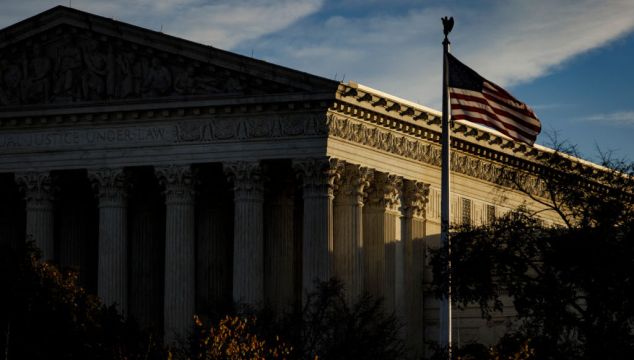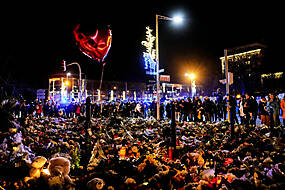US Supreme Court justices appeared divided on Wednesday over the legality of decades-old federal requirements that give preferences to Native Americans and tribal members in the adoption or foster care placements of Native American children.
The justices heard about three hours of arguments in a challenge to the law by a group of non-Native American adoptive families and the Republican-governed state of Texas after lower courts declared parts of it unconstitutional. Democratic president Joe Biden's administration and several Native American tribes are defending the law.
While the justices did not appear willing to entirely strike down the Indian Child Welfare Act of 1978, their questions revealed divisions over whether Congress overstepped its authority in passing it. They also appeared split over whether some of the preferences under the law racially discriminate against non-Native Americans, as the plaintiffs contend.
The law gives "preference" to members of a child's extended family, other tribe members or "other Indian families" in adoptions. Some of the conservative justices raised concerns about that third preference, which can include members of a different tribe.
Conservative Justice Brett Kavanaugh said it would not be permissible for "Congress to say that white parents should get preference for white children in adoption, or that Latino parents should get preference for Latino children".
Conservative Justice Amy Coney Barrett said: "This is just treating Indian tribes as fungible."
The court has a 6-3 conservative majority. The three liberal justices and conservative Justice Neil Gorsuch said Congress viewed the preferences as necessary to protect the sovereign tribes from extinction.
"How is this an insidious racial classification rather than a political classification?" Judge Gorsuch, who in past cases has signalled sympathy toward Native American interests, asked a lawyer challenging the law.
"Congress is very clear in this statute that it thinks that this statute is critical to the continuing existence of the tribe as a political entity," liberal Justice Elena Kagan said.
The Indian Child Welfare Act sought to reinforce tribal connections by setting federal standards for removal and placement in foster care or adoption.
Congress passed it to address a state-level crisis of unwarranted removals of Native American children from their families and placement with non-Native Americans. At the time, between 25 per cent and 35 per cent of all Native American children were removed in states with large Native American populations, according to court papers.
The lawsuit, first filed in 2017, was brought by Texas and three non-Native American families who sought to adopt or foster Native American children. They include Texas couple Jennifer and Chad Brackeen, who in 2018 adopted a child whose mother is a member of the Navajo Nation. The Brackeens are currently in a battle with the tribe as they seek to adopt the boy's half-sister.
The law's defenders have said that singling out "Indians" in legislation is proper under both the Constitution and Supreme Court precedents that consider the designation a political one.
Much of the argument revolved around defining the limits to the vast power of Congress over Native American affairs. Judge Gorsuch wondered why adoptions should be excluded from that power.
"I'm struggling to understand why this falls on the other side of the line," Judge Gorsuch said.
"This is treating children as property," Matthew McGill, the lawyer representing the Brackeens, told Gorsuch.
Conservative Justice Samuel Alito asked questions indicating scepticism about congressional authority. "Does it really have no limits?" Alito asked a Justice Department lawyer.
Tribal groups have called the challenge an attack on their sovereignty and have said a ruling that broadly undermines the Indian Child Welfare Act could affect issues beyond child welfare including land rights and economic development.
The Supreme Court is due to rule by the end of June.
The case is one of three major race-related disputes the court has confronted since the beginning of its current nine-month term last month. The others involve the rights of Black voters in Alabama and race-conscious student admissions policies at Harvard University and the University of North Carolina.







